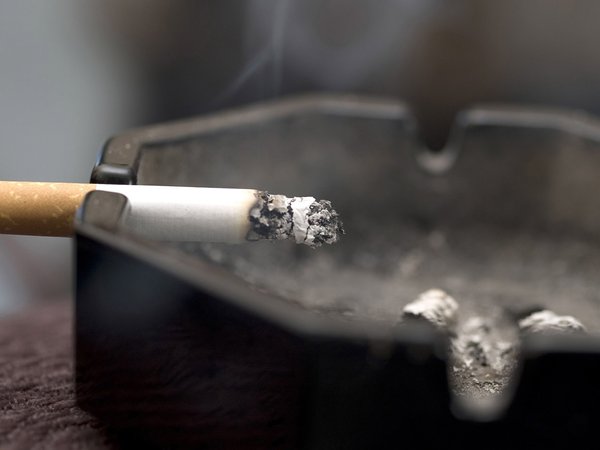For the first time, the World Health Organization has released a set of guidelines to help the 750 million tobacco users across the globe who want to break the habit.
The recommendations urge health care providers, policymakers and other stakeholders to create tobacco cessation programs that combine medication and behavioral interventions.
MORE: Why doctors recommend sunscreens with SPF 30 or higher
"The immense struggle that people face when trying to quit smoking cannot be overstated," said Dr. Rüdiger Krech, director of health promotion at the WHO. "We need to deeply appreciate the strength it takes and the suffering endured by individuals and their loved ones to overcome this addiction.”
Approximately 1.25 billion people use tobacco around the world, and of the 750 million people who want to quit, 70% lack support services to help them do so, according to the WHO.
Smoking causes about 20% of all cancers in the United States. About 80% of lung cancers, and lung cancer deaths, are caused by smoking, according to the American Cancer Society.
The medications varenicline, bupropion and cytisine, as well as Nicotine Replacement Therapy, are effective treatments for weaning off cigarettes, waterpipes, smokeless tobacco products, cigars, roll-your-own tobacco and heated tobacco products, according to the WHO guidelines. The recommendations also call for behavioral interventions, including counseling and the use of smartphone apps.
In Philadelphia, the poorest big city in America, research has shown that the districts with higher rates of poverty are the same districts that have high rates of adult smoking. Although cigarette smoking rates are declining in the city, they remain above the national average, according to a 2021 report from the Philadelphia Department of Public Health.
The prevalence of cigarette smoking in Philadelphia dropped from 24% in 2011 to 17% in 2019 among women, and from 26% to 23% among men. But the reduced rates still were higher than the national averages for women and men.
A 2021 report indicated that smoking prevalence among adults across Pennsylvania was comparable to the national rate of 14.1% of adults.
Trying to quit smoking? Here are some resources
• Pennsylvania's 24-hour, seven-day-a-week Quitline is for anyone who wants to quit tobacco or wants to support someone else who is quitting. You must be at least 14 to get counseling and 18 or older to get medications. Call (800) 784-8669.
• Penn Medicine has a smoking treatment clinic. Call (888) PENN-STOP.
• Fox Chase Cancer Center has a tobacco treatment program that offers counseling along with the use of pharmacotherapy. Call (888) 369-2427 or fill out an online form.
• Jefferson Health offers JeffQuit, a program that gradually decreases the amount of nicotine over a three-week period. Call (215) 955-2221.


